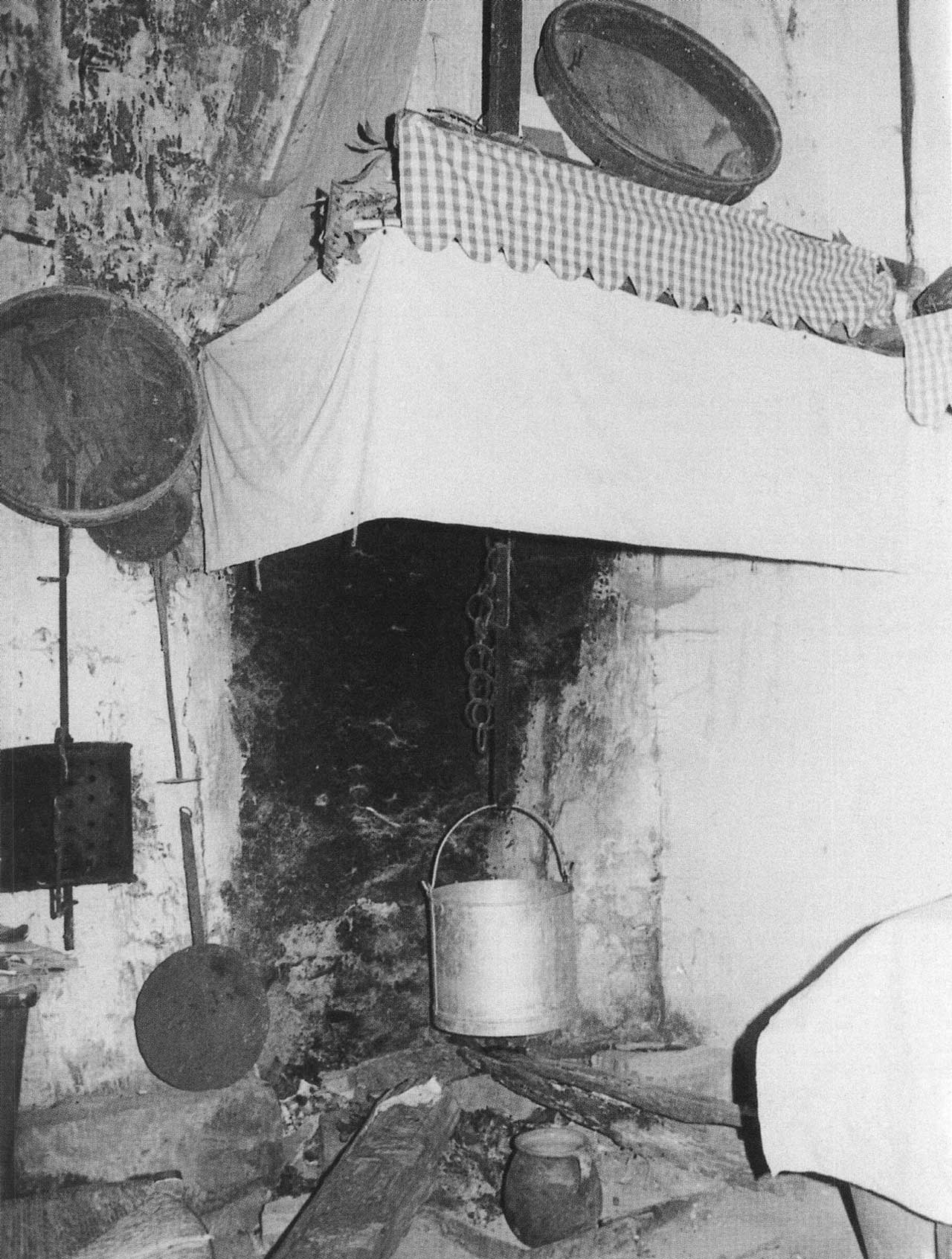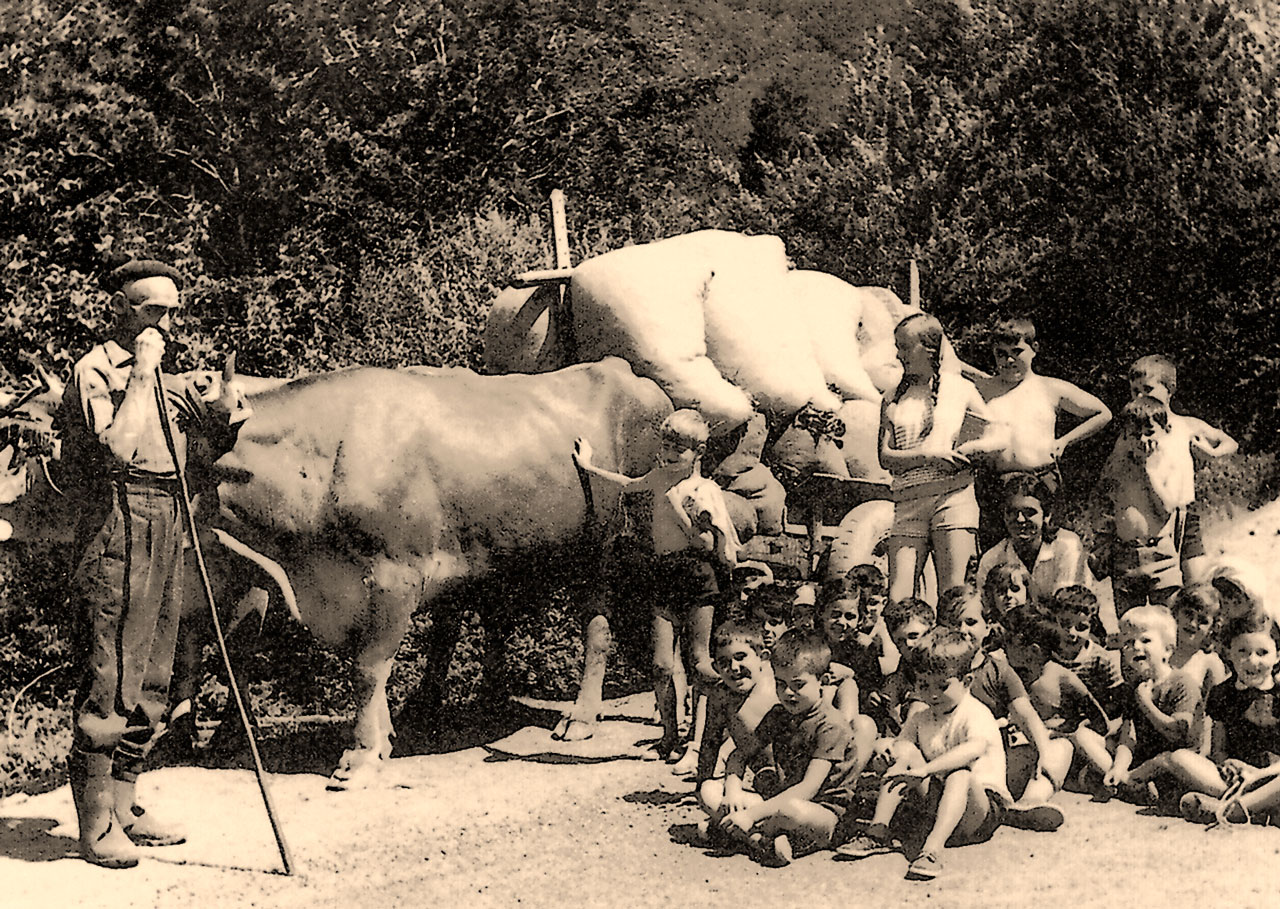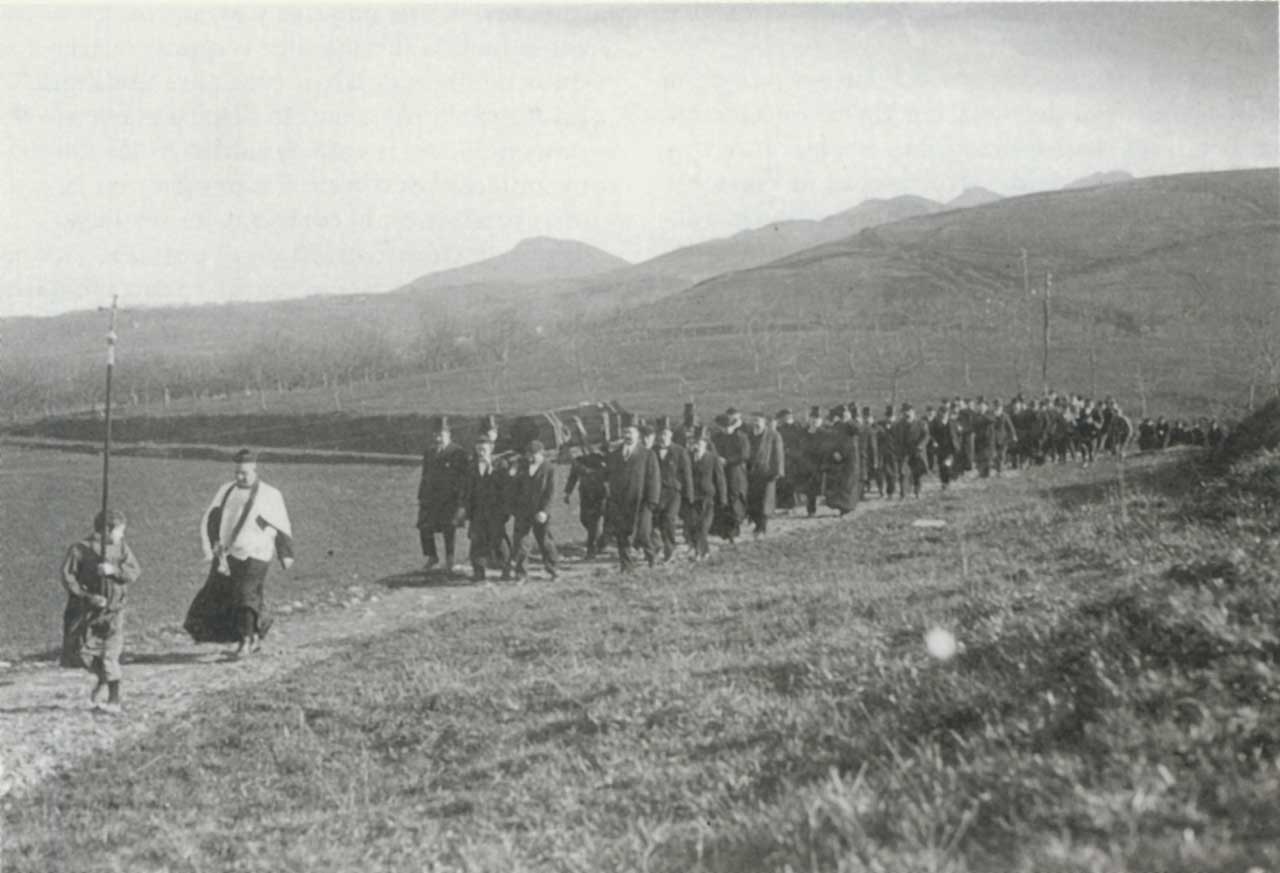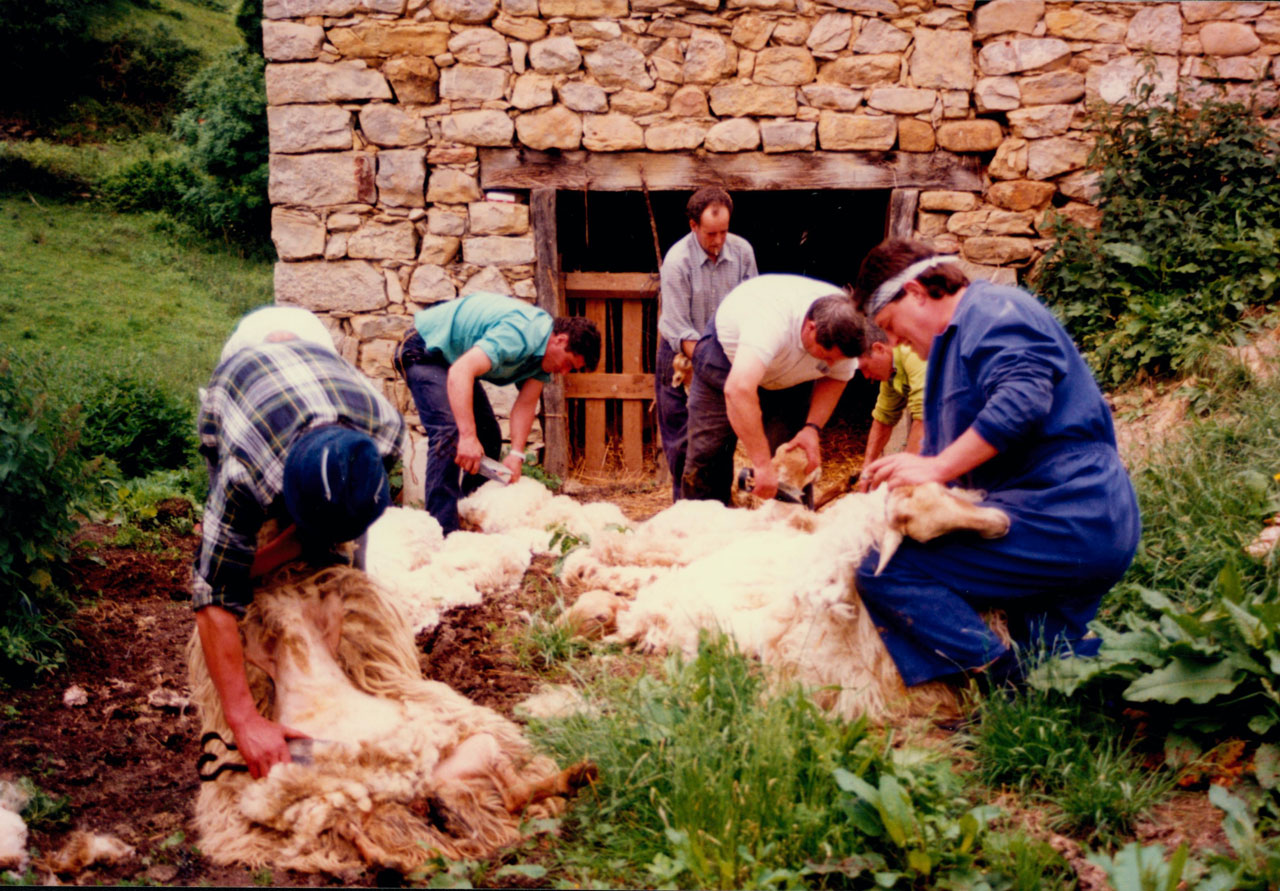Ethnographic Atlas of the Basque Country
Revisión del 13:05 11 mar 2020 de Admin (discusión | contribuciones)
Hearth, wood-burning stove and butane cooker. Neighbourhood of Aiuria (Muxika-B), 2011. Source: Segundo Oar-Arteta, Etniker Euskalerria Groups.
House and Family in the Basque Country


House and Family in the Basque Country
Etxe onak, txingar ona. A good fire in a good home.
Family Diet in the Basque Country


Family Diet in the Basque Country
Sueteko laratzak jakiten dau etxeko barri. People show their true colours at home.
Children’s Games in the Basque Country


Children’s Games in the Basque Country
Txori-ikasten They played looking for birds’ nests and thus learnt about their habits, their songs, the way the nests were built…
Traditional Medicine in the Basque Country


Traditional Medicine in the Basque Country
Ona da ardaoa, kentzeko burutik beherakoa. Treat a cold with a hot toddy.
Nuclear family. Artea (B), c. 1930. Source: Labayru Fundazioa Photograhic Archive: Felipe Manterola Collection.
Rites from Birth to Marriage in the Basque Country


Rites from Birth to Marriage in the Basque Country
Any bachelor, or spinster, traditionally continued to be linked to the homestead and to be an integral part of the family.
Funeral Rites in the Basque Country


Funeral Rites in the Basque Country
There were specific paths to carry the corpse from the house of the deceased to the church and the cemetery.
Traditional sheep shearing. Carranza (B), 1998. Source: Miguel Sabino Díaz, Etniker Euskalerria Groups.
Livestock Farming and Shepherding in the Basque Country


Livestock Farming and Shepherding in the Basque Country
Grullas p’arriba, pastor buena vida, Grullas p’abajo, pastor más trabajo.When cranes fly north, life is easier for shepherds, when they fly south, work is harder for shepherds.
Agriculture in the Basque Country


Agriculture in the Basque Country
Until the 1950s, flour mills were an essential aspect of the livestock-farming economy of our villages.
,-2011.jpg)






